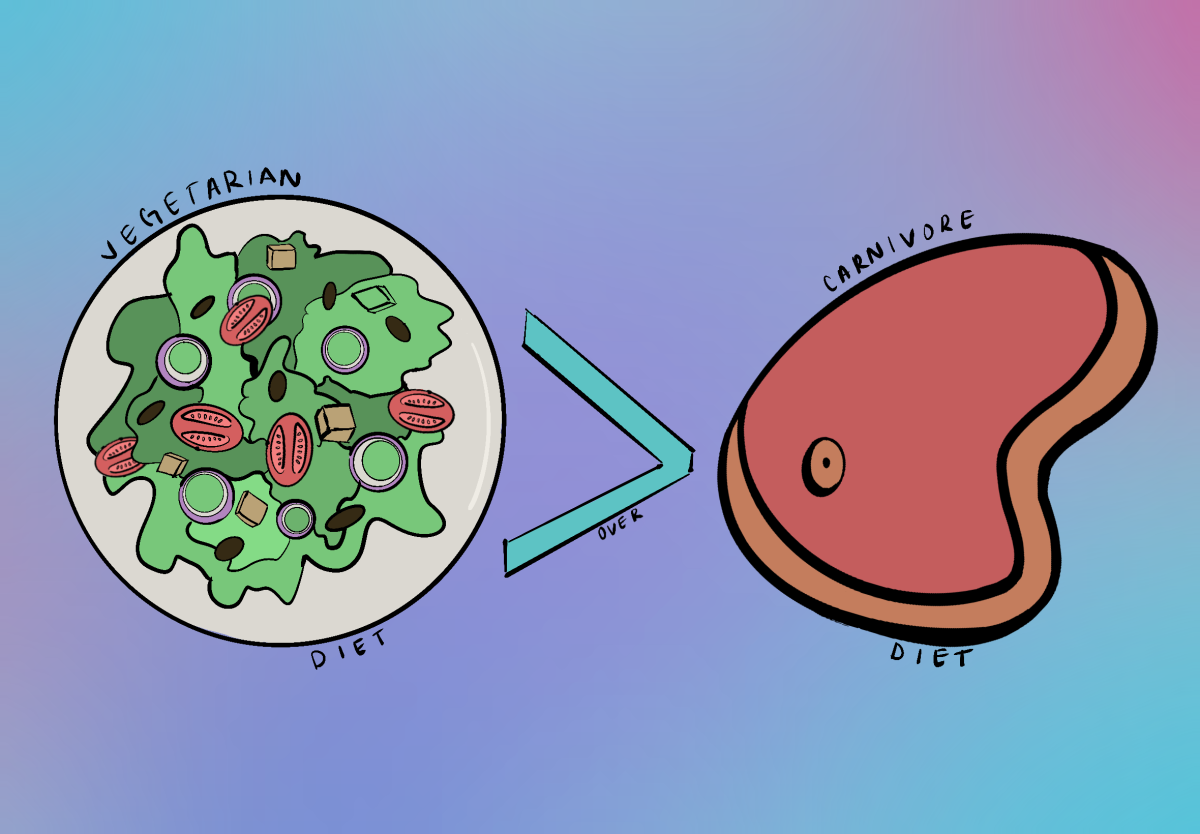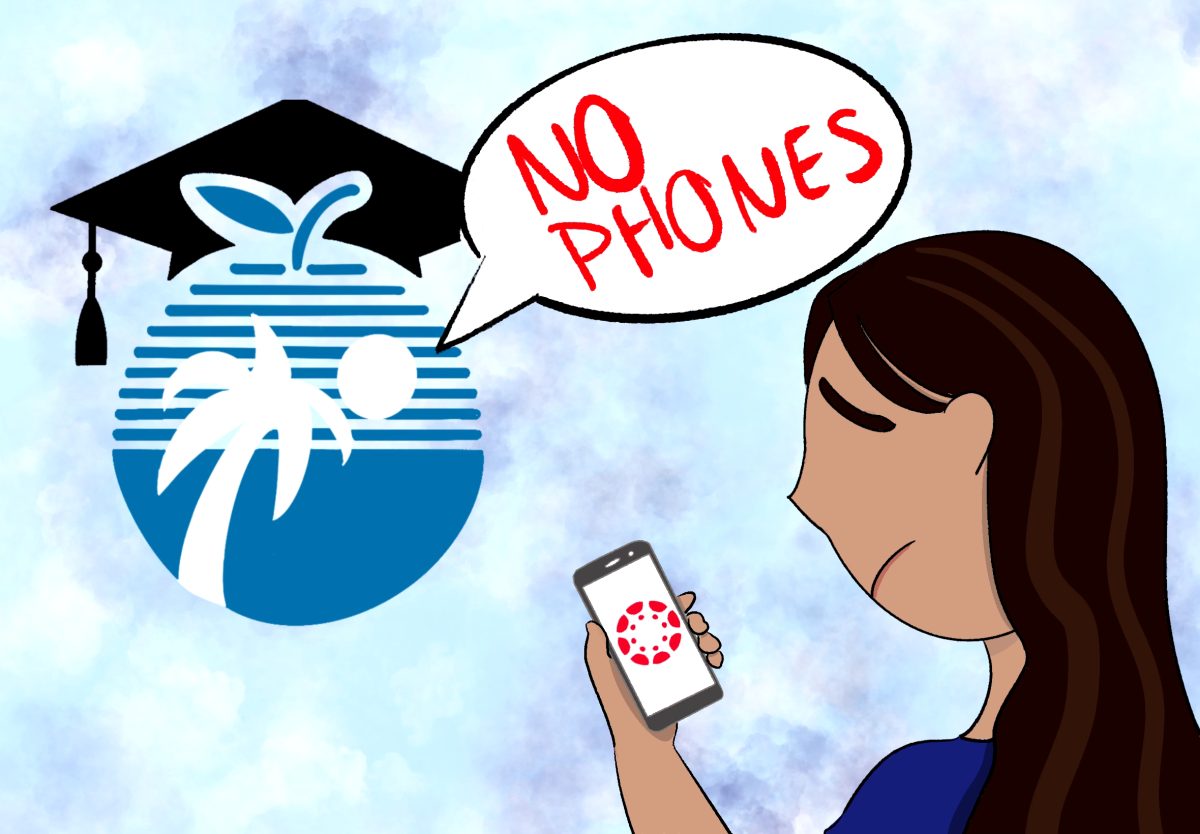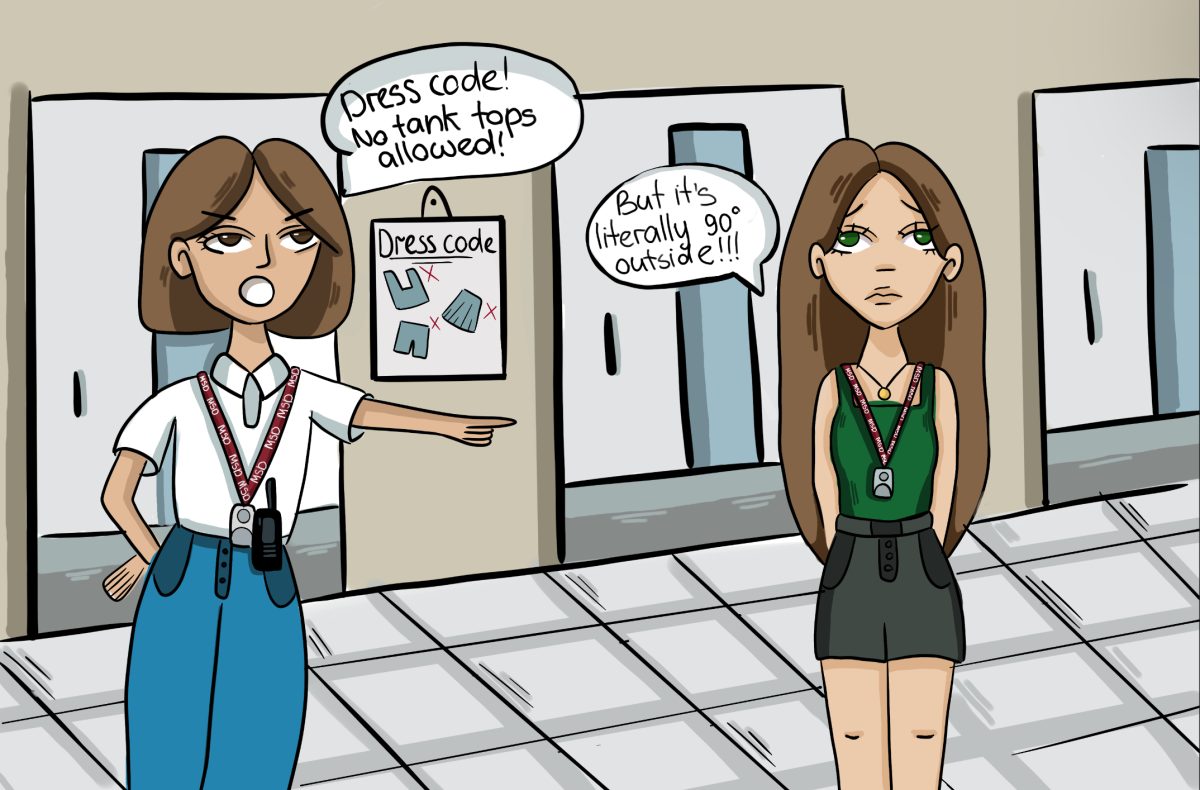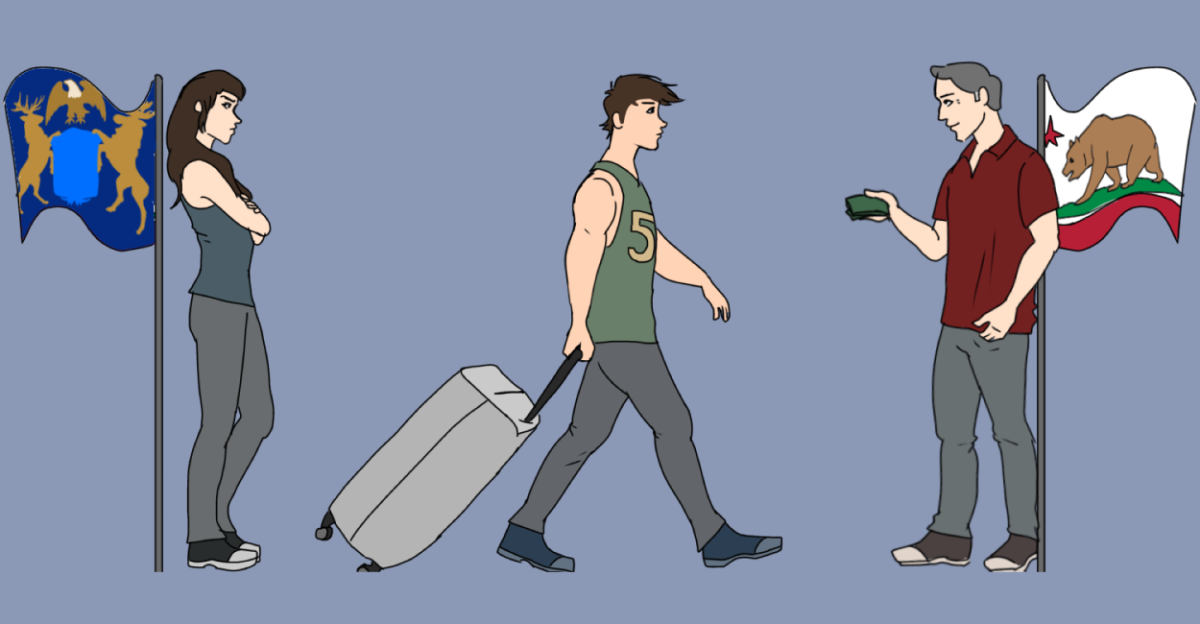Many people think including meat in their personal menu is the best dietary choice because it gives you protein, vitamins and nutrients. In fact, 78% of the world’s population are meat eaters. However, eating meat is the unhealthiest choice, and people should switch over to a vegetarian diet for health and financial benefits.
By definition, Vegetarians can not eat the flesh of animals, which includes red meat, poultry and seafood. Eating the flesh and skin of animals can lead to blocked arteries. Many people also have a higher chance of having strokes, heart diseases or cancer because of blocked arteries. By being vegetarian, one is cutting out the fats that come with eating meat and that cause health issues.
In an average human lifespan, Vegetarians live longer than carnivores. According to a study on Britannica ProCon.org conducted by An Pan, PhD, and Qui Sun, MD, “121,342 people found that eating red meat was associated with an increased risk of death from cancer and cardiovascular disease.” Those who decide to continue eating meat are putting themselves at risk for extreme health issues, while they can avoid these issues by going vegetarian. Health benefits are inherent with vegetarianism because of the amount of vegetables and natural proteins consumed.
Veganism often comes into question when the topic of Vegetarianism is on the table. Veganism is abstaining from all animal products. Individuals think being vegan is healthier than being vegetarian, despite the fact that the vegan diet does not allow for the proper amount of protein or calcium to be ingested. Calcium is primarily found in dairy products, which vegans can not consume. Compared to the vegetarian diet, a vegan diet is not sustainable for human nutrition. Vegetarians can eat eggs and dairy because they are not considered forms of animal flesh, and therefore able to consume proper amounts of calcium.
Although eating meat provides more protein in a smaller portion, farming and slaughtering animals can harm the environment. According to Down to Earth, Organic & Natural, a food retailer in Hawaii, “By choosing a vegetarian diet instead of one loaded with animal products, individuals can dramatically reduce the amount of land, water, and oil resources that they consume…” Going vegetarian can reduce one’s ecological footprint, which measures the amount of natural resources people use. The more of those resources they consume, the larger their ecological footprint and the more they are individually harming the environment.
Switching to a vegetarian diet can also result in spending less money grocery shopping and eating out. Typically, restaurants and fast food chains charge more because of the high cost of meat. Vegetarians, however, do not have to spend money for those goods, as they can not eat them. When grocery shopping at Costco Wholesale, beef patty packs are $17.99 compared to veggie patties that are $15.99. On an average day, Vegetarians spend $2 less per day on food than meat eaters. This may not see like a significant amount, but Vegetarians are saving $730 per year.
Transitioning from an omnivorous diet to a vegetarian diet may be difficult for some, as they are accustomed to a predominantly meat-based diet. However, there are ways to slowly cancel out meat, for example limiting the amount of days one consumes meat. As well, one could start by replacing meat for fish. A pescatarian diet, the allowance of fish, is a good way to slowly convert to vegetarianism.
























